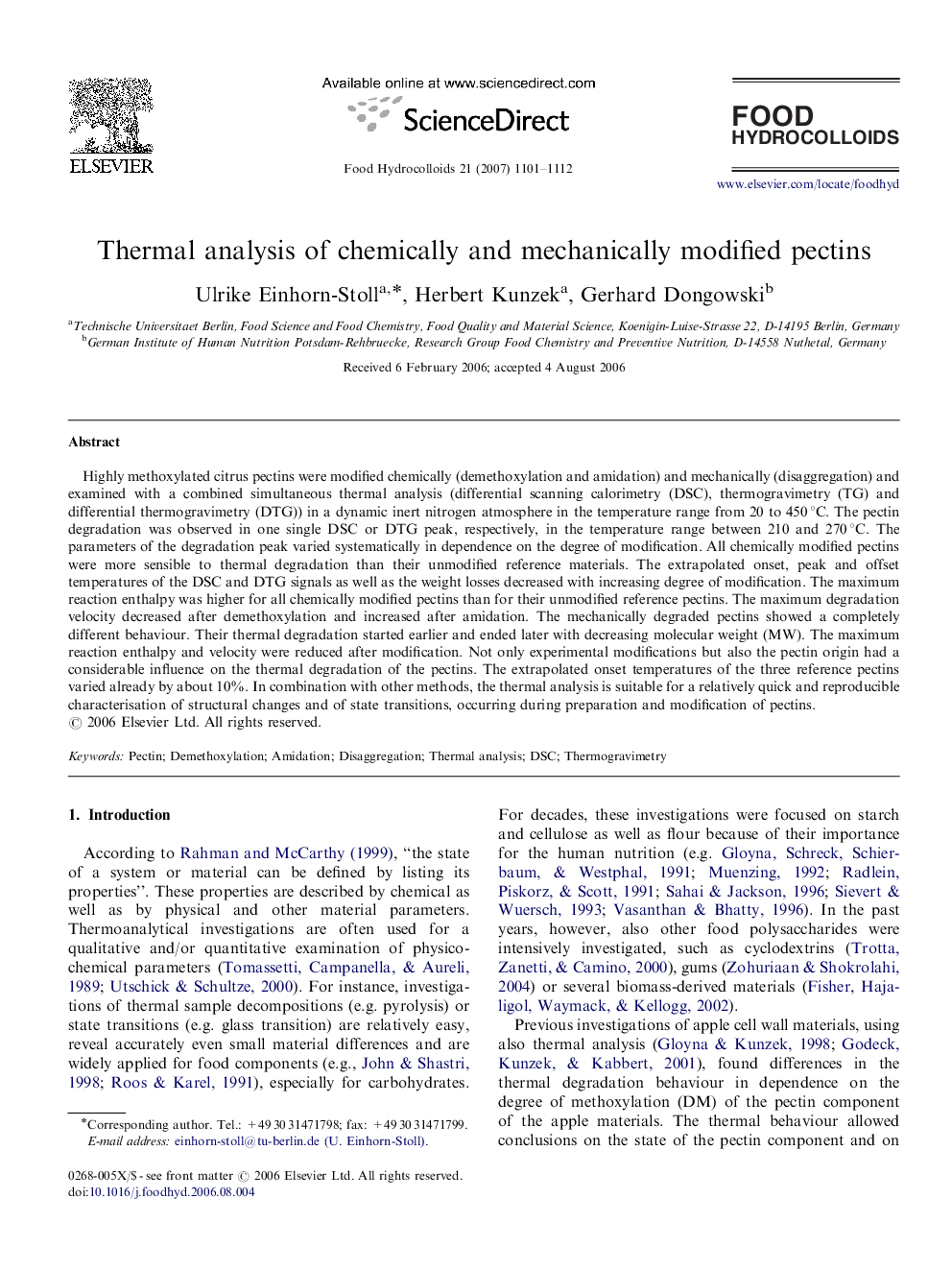| Article ID | Journal | Published Year | Pages | File Type |
|---|---|---|---|---|
| 605819 | Food Hydrocolloids | 2007 | 12 Pages |
Highly methoxylated citrus pectins were modified chemically (demethoxylation and amidation) and mechanically (disaggregation) and examined with a combined simultaneous thermal analysis (differential scanning calorimetry (DSC), thermogravimetry (TG) and differential thermogravimetry (DTG)) in a dynamic inert nitrogen atmosphere in the temperature range from 20 to 450 °C. The pectin degradation was observed in one single DSC or DTG peak, respectively, in the temperature range between 210 and 270 °C. The parameters of the degradation peak varied systematically in dependence on the degree of modification. All chemically modified pectins were more sensible to thermal degradation than their unmodified reference materials. The extrapolated onset, peak and offset temperatures of the DSC and DTG signals as well as the weight losses decreased with increasing degree of modification. The maximum reaction enthalpy was higher for all chemically modified pectins than for their unmodified reference pectins. The maximum degradation velocity decreased after demethoxylation and increased after amidation. The mechanically degraded pectins showed a completely different behaviour. Their thermal degradation started earlier and ended later with decreasing molecular weight (MW). The maximum reaction enthalpy and velocity were reduced after modification. Not only experimental modifications but also the pectin origin had a considerable influence on the thermal degradation of the pectins. The extrapolated onset temperatures of the three reference pectins varied already by about 10%. In combination with other methods, the thermal analysis is suitable for a relatively quick and reproducible characterisation of structural changes and of state transitions, occurring during preparation and modification of pectins.
